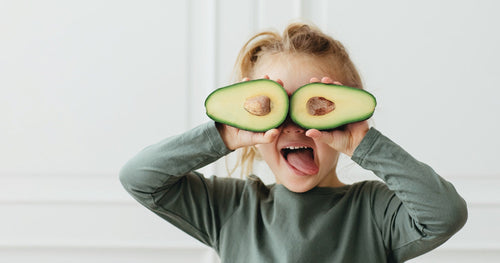
Summer is here, and with it comes endless sunshine, outdoor adventures, and vibrant days spent basking in the warmth. But while we’re busy enjoying all that summer has to offer, our eyes are working overtime—facing intense sunlight, dust, wind, and even hours of screen time as we capture memories or catch up on vacation reading. It’s no surprise that eye health becomes especially important during these sunny months. So how can we keep our vision sharp and our eyes comfortable this season? This brings to “light” four very important nutrients: lutein, vitamin A, vitamin C, and vitamin E which work together like a dream team to protect your eyes from summer’s unique challenges.
When the sun is high and the days are long, our eyes face increased exposure to ultraviolet (UV) rays which are a major culprit behind eye discomfort and damage. Prolonged UV exposure may accelerate aging of the delicate tissues in our eyes, increasing the risk of various eye conditions; however, UV isn’t the only challenge as hot weather often leads to dry air and dehydration, which can cause dry eyes or worsen irritation for contact lens wearers. Add pollen, chlorine from pools, and more frequent use of digital devices (hello, travel photos!), and it is clear why summer demands special care for optimal eye health. We know how to protect our eyes through sunglass use when outside and Blue-light blockers when using our devices, but many may not know that we also can protect our eyes from within using specific nutrients.
Lutein is a powerful antioxidant known as a carotenoid that is naturally found in high concentrations in the retina and lens of our eyes. Think of lutein as internal sunglasses as it helps to filter harmful blue light and neutralize free radicals caused by UV exposure. It works to shield against oxidative stress from sunlight and supports visual clarity and contrast sensitivity Unfortunately, the human body does not naturally make the lutein it needs; therefore, daily amounts it through foods and nutritional supplements can assist with maintaining good eye health. Vegetables that contain lutein are collard greens, turnip greens, romaine lettuce, and broccoli; however, if these aren’t foods that please your pallet, supplements are a great option to fill in the gap. Although there is no recommended daily intake for lutein, most recent studies show health benefits in taking approximately 10 mg/day. Some formulas contain Lutemax 2020 which is a trademarked formulation that provides 3 carotenoids (lutein, zeaxanthin, and meso-zeaxanthin). Lutemax 2020 is clinically proven to support eye health by filtering high-energy blue light from digital devices and indoor/outdoor light, reducing eyestrain and supporting glare tolerance while using digital devices.
Vitamin A is an antioxidant that is crucial for low-light (night) vision because it forms part of rhodopsin, which is a protein in our eyes that allows us to see in dim lighting, and it keeps the surface of our eyes (the cornea) moist and healthy. Food sources of vitamin A include cod liver oil, eggs, fortified milk, orange and yellow fruits and vegetables. The DRI (Daily recommended Intake) amount of retinol or retinyl forms of vitamin A varies from 900 RAE (retinol activity equivalents) to 1300 RAE; however, with certain eye issues, even higher amounts are recommended. Vitamin C is also an antioxidant powerhouse for eye health. It promotes the regeneration of other antioxidants within the eye like vitamin E, battles against oxidative stress from sun exposure and pollutants, and supports strong blood vessels including those in your retina. Vitamin E works together with vitamin C to stabilize cell membranes in your eyes and fight off damage from free radicals. Be sure to pair fat-soluble vitamins (A & E) with healthy fats like olive oil or nuts to support better absorption.
Some other handy tips to keep in mind for eye health include eating the rainbow as colorful plates mean more variety and more nutrients and keeping healthy snacks handy like pre-cut veggies or portioned trail mix which make it easier to get key nutrients on-the-go. Also, staying hydrated is important for eye health as proper hydration supports tear production and overall comfort. Lastly, don’t forget to wear sunglasses. Nutrition, supplementation, plus physical protection equals happy summer eyes!
Summer offers so many reasons to smile and when we nourish our bodies with lutein plus vitamins A, C, and E, we’re giving our eyes every chance to stay healthy through all the fun under the sun. So, prioritize eye health this summer, the view will be worth it!






